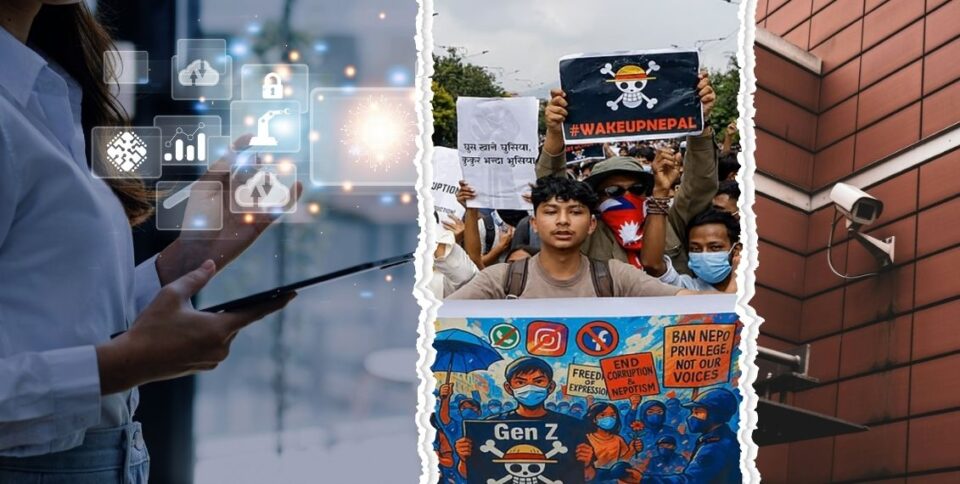Gen Z Rebellion: In 2020, Amy Cooper was fired from her job at Franklin Templeton after a video of her threatening to call the police on a Black man went viral.
During the George Floyd protests in the U.S., several police officers caught on camera making racist remarks or using violence against protesters were dismissed. The video of an officer kneeling on George Floyd’s neck sparked the Black Lives Matter movement.
In 2019, employees in mainland China were fired for participating in Hong Kong’s pro-democracy protests. More recently, a Vancouver truck driver lost his job after a video surfaced of him attacking a cyclist, and a Canadian college instructor was dismissed for joining anti-COVID mandate protests.
These examples show how the digital eye — ever watching, ever recording — can determine careers. Yet, despite knowing this, Generation Z continues to protest, post, and push back against power.
The Global Wave of Gen Z-Led Protests
From Sri Lanka, Bangladesh, and Nepal to Morocco, Peru, and Ladakh, Gen Z — those born between 1997 and 2012 — is driving revolutions that have shaken governments and challenged entrenched elites across the Global South.
In Nepal, protests began when the government banned certain social media sites under the pretext of enforcing taxes. Behind the anger was deep frustration: the youth saw privileged “#NepoBabies” flaunting luxury lifestyles online while ordinary citizens struggled to survive on an annual income of just $1,400.
In Morocco, the “Gen Z 212” movement (named after the country’s dial code) spread to 11 cities. Protesters decried billions being spent on 2030 World Cup stadiums while hospitals collapsed and women died in childbirth. Three protesters were killed near Agadir, but the movement vowed to continue, inspired by Nepal’s example.
In Madagascar, youth demonstrations over blackouts and water shortages forced the President to dissolve his cabinet. “We are the last hope,” declared Gen Z Madagascar on Facebook, borrowing tactics from Indonesia’s anti-police brutality protests.
Digital Activism: The Protest That Never Goes Offline
Gen Z knows that what happens online stays online. Employers, universities, and even governments scrutinize digital footprints. A 2024 Indeed survey revealed that 62% of employers reconsidered hiring after reviewing a candidate’s online presence.
Still, fear of being “Googled” doesn’t deter this generation. As a Moroccan Gen Z 212 activist told France 24, “We have nothing to lose.” Their fight isn’t only about jobs — it’s about justice, dignity, and a fair chance at life.
Authenticity Is the New Currency
Gen Z grew up in a hyper-connected world where privacy was optional and visibility was default. Their teenage angst unfolded on Instagram; their political awakening streamed live on TikTok.
When older generations warn, “Future employers will see that,” Gen Z simply shrugs — because everyone already does. Their logic is simple: if you can’t hide, you might as well stand for something.
For them, authenticity outweighs image. Staying silent in the face of injustice feels riskier than speaking out. Whether it’s Palestine, climate change, LGBTQ+ rights, or student debt, they post, protest, and persist.
Resilience or Recklessness?
This isn’t recklessness — it’s realism. Gen Z saw their elders play by the rules — get degrees, network politely, stay “neutral” — only to face layoffs, burnout, and economic instability.
The myth that hard work ensures success died somewhere between the Great Recession and COVID-19. So why hide your beliefs when the algorithm already knows your habits, location, and politics?
Frustration with systemic stagnation fuels rebellion. With boomers refusing to retire and millennials stuck in middle management, Gen Z often finds itself locked out of opportunity — choosing “quiet quitting” or protest instead.
The Internet Never Forgets
The Carnegie Endowment calls this moment “evolution, not revolution.” Yet, before Gen Z plans its next digital revolt, it must remember: the internet has a long memory and a cruel sense of humour.
What feels brave at 21 may look impulsive at 31. A livestreamed protest today can become a liability tomorrow. In Nepal, protesters are being tracked through viral videos. In the U.S., students rallying for Palestine have faced suspension or even deportation.
Calculated Rebellion or Digital Foolishness?
So, are Gen Z activists afraid of their digital shadows? Probably not. They’ve made peace with exposure. To them, authenticity is courage — and living quietly feels like surrender.
Perhaps this is strategic fearlessness, a calculated risk where visibility itself becomes resistance. Yet as authorities increasingly use digital trails for surveillance and prosecution, one question remains:
Should Gen Z be more cautious?
Or is this fearlessness the new face of rebellion in a surveilled world?

